Life
Sign up for our newsletter
We summarize the week's scientific breakthroughs every Thursday.
-
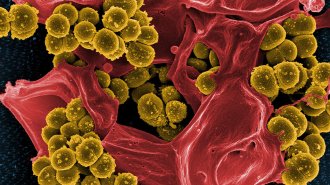 Microbes
MicrobesMicrobes slowed by one drug can rapidly develop resistance to another
Hunkering down in a dormant, tolerant state may make it easier for infectious bacteria to develop resistance to antibiotics.
-
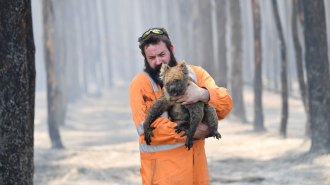 Animals
AnimalsAustralian fires have incinerated the habitats of up to 100 threatened species
Hundreds of fires that are blazing across the continent’s southeast have created an unprecedented ecological disaster, scientists say.
-
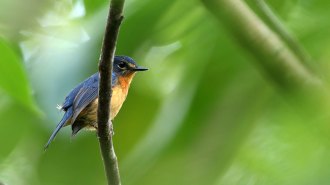 Life
LifeA ‘bonanza’ of new bird species was found on remote Indonesian islands
Bird discoveries typically come in a trickle. But in a remote corner of Southeast Asia, 10 newly described songbird species and subspecies were found.
By Jake Buehler -
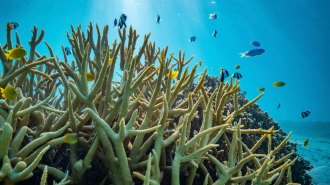 Life
LifeOcean acidification may not make fish act weird after all
A new study casts doubt on the results of early work into the effects of ocean acidification on coral reef fish behavior.
-
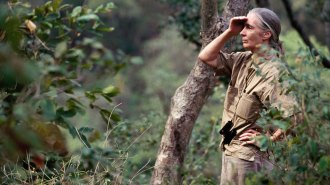 Science & Society
Science & SocietyA new exhibit invites you to step into Jane Goodall’s life
“Becoming Jane” celebrates Jane Goodall’s life and pioneering chimpanzee research.
By Erin Wayman -
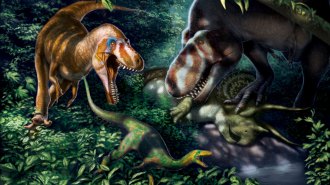 Paleontology
PaleontologySmall ‘cousins’ of T. rex may actually have been growing teenagers
Fossil analyses suggest that Nanotyrannus wasn’t a diminutive relative of the more famous behemoth Tyrannosaurus rex.
By Sid Perkins -
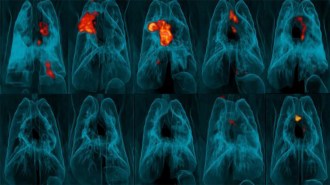 Health & Medicine
Health & MedicineInjecting a TB vaccine into the blood, not the skin, boosts its effectiveness
Giving a high dose of a tuberculosis vaccine intravenously, instead of under the skin, improved its ability to protect against the disease in monkeys.
By Tara Haelle -
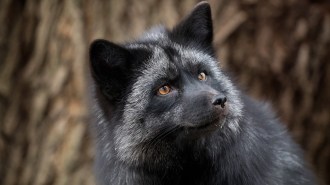 Life
LifeRussian foxes bred for tameness may not be the domestication story we thought
Foxes bred for tameness also developed floppy ears and curly tails, known as “domestication syndrome.” But what if the story isn’t what it seems?
By Jake Buehler -
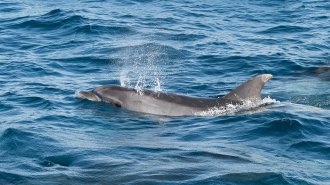 Life
LifeFluid dynamics may help drones capture a dolphin’s breath in midair
High-speed footage of dolphin spray reveals that droplets blast upward at speeds approaching 100 kilometers per hour.
-
 Life
LifeStick-toting puffins offer the first evidence of tool use in seabirds
Puffins join the ranks of tool-using birds after researchers document two birds using sticks to groom, a first for seabirds.
-
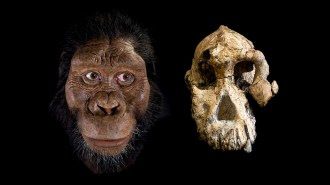 Paleontology
PaleontologyScience News’ favorite fossils of 2019
Fossil discoveries reported this year included Cambrian creatures, ancient bone cancer and a peek at life’s recovery after the dinosaur die-off.
-
 Microbes
MicrobesAirplane sewage may be helping antibiotic-resistant microbes spread
Along with drug-resistant E. coli, airplane sewage contains a diverse set of genes that let bacteria evade antibiotics.